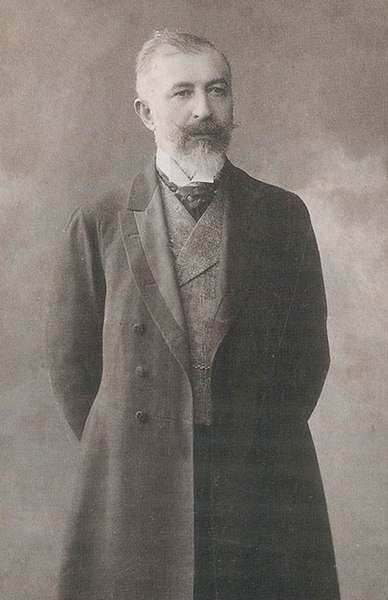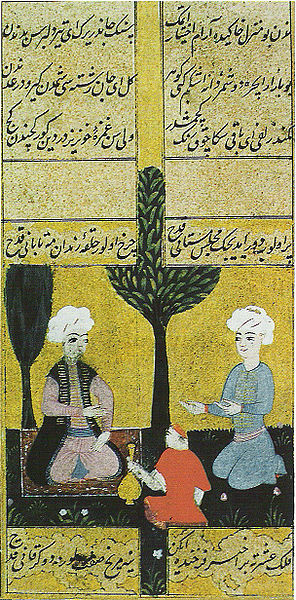Halid Ziya Uşaklıgil was a Turkish author, poet, and playwright. A part of the Edebiyat-ı Cedide movement of the late Ottoman Empire, he was the founder of and contributor to many literary movements and institutions, including his flagship Servet-i Fünun journal. He was a strong critic of the Sultan Abdul Hamid II, which led to the censorship of much of his work by the Ottoman government. His many novels, plays, short stories, and essays include his 1899 romance novel Aşk-ı Memnu, which has been adapted into an internationally successful television series of the same name.
Halid Ziya Uşaklıgil
Halid Ziya Uşaklıgil in his middle age
Turkish literature comprises oral compositions and written texts in the Turkish language. The Ottoman form of Turkish, which forms the basis of much of the written corpus, was highly influenced by Persian and Arabic literature, and used the Ottoman Turkish alphabet.
An aşık performing in Anatolia, from an 18th-century Western engraving
An Ottoman garden party, with poet, guest, and cup-bearer; from the 16th-century Dîvân-ı Bâkî
A page from Nava'i's diwan. From the library of Suleiman the Magnificent.
Fuzûlî (1483?–1556), a Divan poet of Azerbaijani origin






